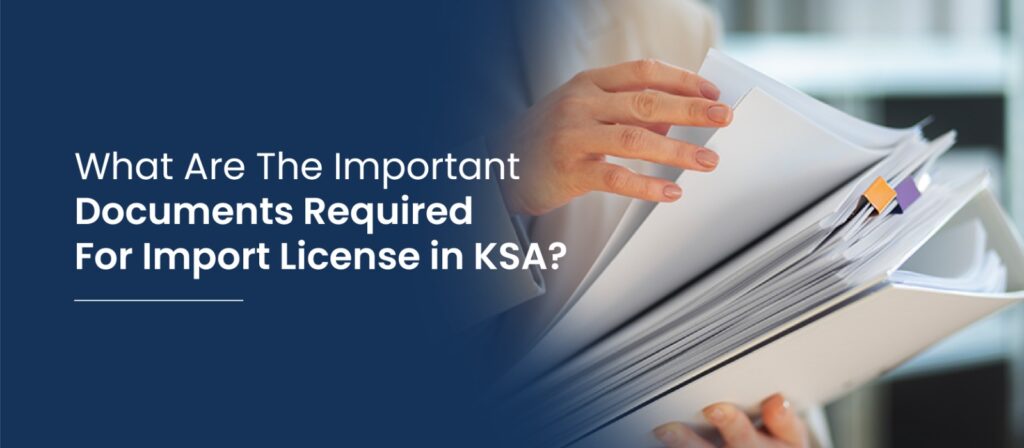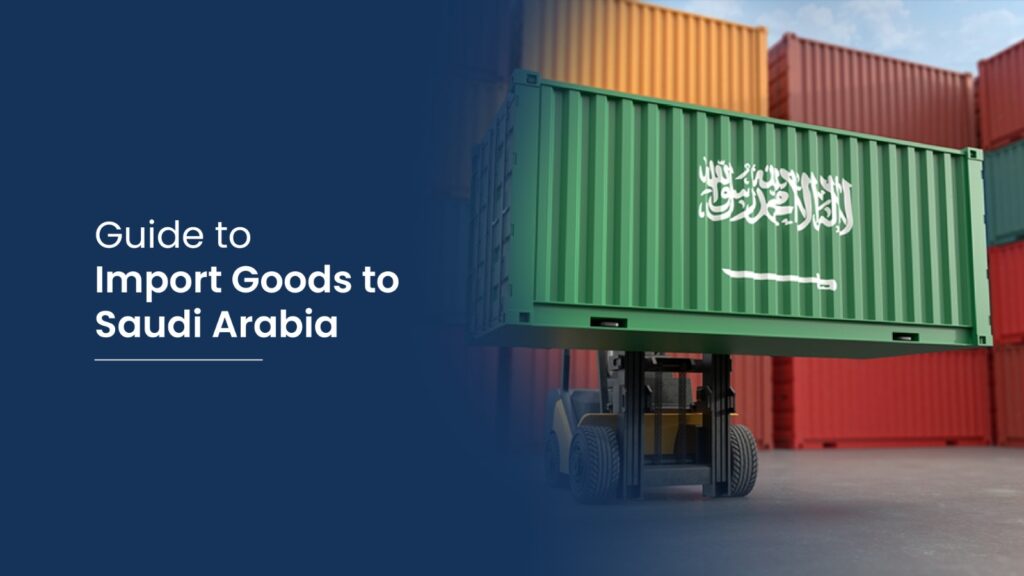Analytix has prepared this guide to help businesses understand Saudi Arabia import requirements and successfully start importing goods into the Kingdom. Importers must comply with Saudi customs laws, applicable standards, and product approval procedures before shipping to Saudi Arabia.
Importing into Saudi Arabia involves compliance obligations set by customs authorities, MISA (formerly SAGIA), and other regulatory bodies. Businesses must ensure their shipments meet applicable standards under SASO and obtain the necessary Saber certificate through the Saber platform. The Saber system supports product registration and documentation verification before shipment review.
How to Get an Import License in Saudi Arabia?
To import legally, businesses must first register with the Ministry of Commerce. Meeting licensing conditions involves submitting proper documentation and completing required approvals.
Key steps include:
- Registering the business with the Ministry of Commerce
- Obtaining approvals from the relevant authorities
- Ensuring adherence to applicable technical standards
- Completing product verification procedures where required

What Are the Important Documents Under Saudi Arabia Import Requirements?
There are essential requirements that apply to all commercial shipments. Proper certification and documentation are critical for smooth processing at entry points.
Required documents include:
- A commercial invoice containing a detailed commercial invoice description, quantity, HS code, value, and country of origin.
- Certificate of Origin issued by the chamber of commerce.
- Clean Bill of Lading or Airway Bill as part of the shipping documents.
- Insurance Certificate (if applicable).
- Packing List describing the items, weight, and specifications.
- SASO conformity documents where required.
- Saber certificate issued through the Saber platform.
Certain regulated items may require additional documentation such as a health certificate, especially for food items. Products containing pork are restricted under Saudi law.
Certification Process:
Certification and compliance form a major part of the overall framework. Manufacturers and exporters must ensure that shipments meet Saudi standards before dispatch.
The certification process typically includes:
- Notarization of documents
- Chamber of Commerce certification
- Attestation by the Saudi Embassy
- Product verification through authorized bodies
- Registration in the Saber system
These procedures ensure that items entering Saudi Arabia meet safety, labeling, and technical standards.
Customs Clearance Process
Entry review is conducted after document verification. Importers must submit accurate shipping documents, invoices, and approval documents to avoid delays.
Authorities review:
- HS code classification
- Invoice details
- Product documentation
- Certification approvals
- Applicable duties
Failure to meet the stated conditions may result in shipment rejection or penalties.
Prohibited and Regulated Goods
Saudi Arabia enforces strict control over certain categories. Items such as weapons, adult content, alcohol, and pork are restricted. Regulated shipments may require additional approvals from relevant authorities before entry approval.
Conclusion
Hey!
We’re so glad to have you here!
How did it feel reading our blog? We hope it was informative.
Understanding certification procedures, customs processes, and regulatory standards is essential for successful importing. By ensuring proper documentation and securing the required Saber certificate, businesses can achieve efficient processing and smooth operations.
Partnering with experienced consultants like Analytix can simplify documentation, certification, and regulatory procedures, ensuring the smooth establishment of your import business in the kingdom. With expert guidance, businesses can operate confidently within Saudi Arabia’s growing trade environment.
Happy Reading!
- FAQs
Frequently Asked Questions
If your question is not addressed here, please feel free to reach out to us. We value your inquiry.
How much is import duty in Saudi Arabia?
Saudi Arabia charges import duty on articles and goods based on CIF (Cost, Insurance, and Freight) values. Tariffs for customs are usually between 5% and 12% depending on various product categories. All non-document express shipments not documents will attract 5% VAT on it. The goods are exempted from paying the customs duty if the shipment value is less than SAR 1,000 (equivalent to USD 270). Qualified products will have reduced customs charges under some of the preferential trade agreements, such as those under the Arab League or the Gulf Cooperation Council (GCC).
What are the 3 major imports of Saudi Arabia?
The three major imports of Saudi Arabia are machinery, mechanical appliances, and electrical equipment (27 percent of total imports), transport equipment and parts (16 percent), and base metals (13 percent). Other major imports include chemicals and related products (9 percent) and vegetables (6 percent). The Kingdom mainly imports its goods from countries such as China (13 percent of total imports), the United States (12.6 percent), Germany (7 percent), and Japan (6 percent), with other flows from South Korea, the UAE, France, and Italy.

























